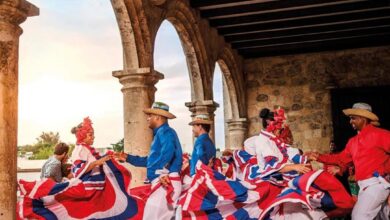Did Shakira and Carlos Vives plagiarized ‘La Bicicleta’?
Listen this article
The two musicians had to testify before a Spanish court this Tuesday to defend themselves against the accusations of plagiarism of the Cuban Livam

Almost two years ago we were listening for the first time "La bicicleta" by Carlos Vives and Shakira. The song became an immediate success. Two of the most recognized Colombian singers abroad joined forces to make this collaboration with the color of tropipop and vallenato dyes whose music video was recorded in Barranquilla, where the singer is from.
Leer en español: ¿Plagiaron Shakira y Carlos Vives "La Bicicleta"?
'La bicicleta' sounded in discotheques and it sounded on the radio, it was impossible, even if it did not please, not to hum it if it was heard on the street. It is part of Vives, the fifteenth album by Carlos Vives, which is next to other hits like "Al filo de tu amor" and "Robarte un beso". Later the song would be the winner of the Latin Grammy for Best Song.
Now, two years later, the two artists and composers of the song are accused of plagiarism by the Cuban musician Livam, who affirms that "La Bicicleta" is a copy of his song "Te quiero tanto". Here the details of both sides.
Who is Livam?
Liván Rafael Castellanos Valdés, better known as Livam, is a Cuban musician and the demander of the Colombian singers. He is the author of "Te quiero tanto", a song in which he says "La bicicleta" is inspired. What is his version of events?
Livam says that Colombian producer Andrés Castro, third composer of "La Bicicleta", would have had access to his song "Te quiero tanto" through his representative. He argues above all that the refrain is a complete copy of his song: while Shakira and Carlos Vives chant "que te sueño y que te quiero tanto" (I dream you and I love you so much), he sings "yo te quiero, yo te quiero tanto" (I love you, I love you so much).
These accusations have ignited a debate about inspiration and what is considered plagiarism in pop music, full of formulas that artists repeat over and over again. In this case, according to El Espectador, the Spanish court was attended by Alfonso Romero, composition teacher who was brought as witness of the plaintiff, whose opinion is that although the refrain phrase is quite common, the way in which it is used in the song, is plagiarism because the notes coincide with the syllables.
The Cuban singer also said, a bit in tears, that this 1997 song was like a son who was being robbed and groped. The plaintiff also says that he will face this trial with calm and patience and that he will wait for what he has to wait and he affirmed to be able to compose a song right there in the court.
Read also: Juanes and other artists who have changed the musical genre radically
What do the defendants say?
The composers of "La Bicicleta" are the Samario singer Carlos Vives, the Barranquillera Shakira and the producer Andrés Castro. The three, along with the Sony label, are the defendants. Carlos Vives is the author of most of the lyrics and the melody, work he shared with Castro. Shakira, on the other hand, helped in the writing of the chorus, which is the part of greater similarity with the song of the plaintiff.
Everyone says they have never heard "Te quiero tanto" or know about Livam or have access to their catalog. They argue, moreover, that the songs do not look alike, because "La Bicicleta" is a tropical pop vallenato that refers to the Colombian Caribbean, to the coast, to Tayrona, while "Te quiero tanto" is a "Dominican salsa that wants to be a vallenato", as he said, according to El Espectador, the Barranquilla singer.
To defend herself, Shakira sang and hummed "La bicicleta" several times in court to show how the two songs did not look alike. She also stated that she did not find melodic or thematic similarities, which is why plagiarism could be traced. Finally, the singer clarified that she had not participated in the composition of the melody, only in the writing of the chorus.
Carlos Vives, for his part, defended himself by referring to his career as an artist. He claimed to be the father of modern music and the largest representative of vallenato in Spain. He argued that this defined him as a musician and not as an imitator.
The plaintiffs also brought a professional witness to the music to argue in their favor. The Colombian Juan Antonio Cuellar affirmed that although there are some rhythmic coincidences and in the lyrics of the chorus, the harmonic and melodic structure of both songs is totally different.
The judge will decide and the listeners will judge.
LatinAmerican Post | Juliana Rodríguez Pabón
Translated from "¿Plagiaron Shakira y Carlos Vives 'La bicicleta'?"





